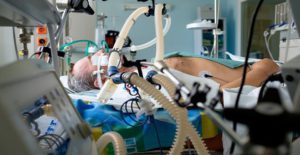By Mackenzie Graham
On July 30, The UK’s Supreme Court ruled that there is no requirement to obtain court approval before withdrawing clinically assisted nutrition and hydration (CANH), when there is agreement between physicians and the family that this is in the best interests of the patient.
In the judgement, Lady Black writes:
“If the provisions of the MCA [Mental Capacity Act] 2005 are followed and the relevant guidance observed, and if there is agreement upon what is in the best interests of the patient, the patient may be treated in accordance with that agreement without application to the court.”
Until now, requests to withdraw CANH needed to be heard by the Court of Protection to determine if withdrawing treatment was in the patient’s best interest. In addition to being emotionally difficult for families, this is a time-consuming and expensive process, and often results in the patient dying before a judgement is rendered.
I think this decision has much to be said in its favour. First, it means that when there is agreement that continued treatment is no longer in the best interests of a patient with a prolonged disorder of consciousness, these patients are no longer being ‘forced to live’ until the Court affirms that being allowed to die is in their best interests. In many cases, court decisions take months, meaning that a patient is forced to be kept alive, against their best interests and the wishes of their family. Making the decision to withdraw care from a loved one is highly distressing, and this is likely further compounded by the burden and distraction of court proceedings.
Read More »UK Supreme Court Decision Means Patients No Longer Forced to Live


